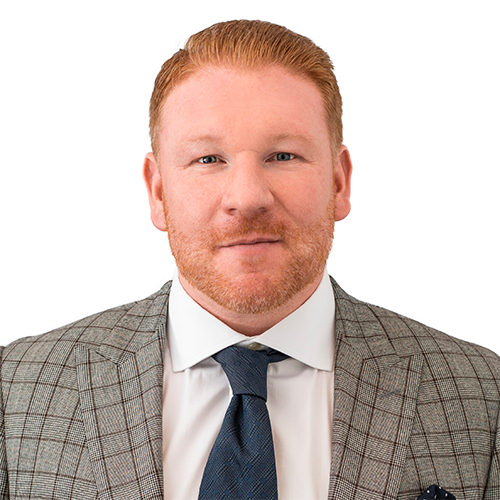Episode 25 – October 26, 2021
Listen On: Apple Podcasts | Spotify | Google Podcasts | YouTube
Did you find the perfect commercial property to invest in but, not sure how to or where to start? This week, Cory and Matt welcome commercial mortgage specialist Matthew Dunnigan, from the Impact Commercial Group, who breaks down all the steps needed from start to finish to help you acquire that commercial investment property you have always wanted.
Matt discusses what asset classes banks are most bullish on, how much of a down payment you need to get started and everything in between. Matt also gives us his picks of which BC cities and asset classes he would invest in heading into 2022. This episode is a great refresher for a seasoned investor and a can’t miss for all of those looking to enter into the commercial real estate landlord business. Grab a pen and paper to take notes because after finding out just how simple it is to finance commercial real estate, everyone will be adding an investment property to their Christmas list this year!
Listen to Episode
Guest Information

Matthew Dunnigan
Matthew Dunnigan is a Commercial Mortgage Specialist for Impact Commercial Group. Matthew attended the University of Western Ontario for Bachelor of Management & Organizational Studies. His extensive lending and relationship management experience includes 14 years of Commercial Banking in downtown Toronto and Vancouver. He is extremely passionate about developing friendships and building client bonds.
Episode Summary
Please tell us about yourself.
I grew up between the east coast and west coast. I started my career in Toronto in commercial banking. I moved back to Vancouver and continued banking for the next eight years. About 6-7 years ago, I kept running into Alan Haigh and actually played hockey with him. He got me into the mortgage side of things at Impact Commercial.
If someone wants to buy an investment property, what are the first things they need to do?
For investment property financing, you want to identify the property first. We can usually get 75% financing, depending on the property type. So you need to know what kind of property you’re looking at. The risks when you’re looking into financing are 1) determining the value of the building and 2) the lease agreement. With owner-occupied buildings, the risk is on the strength of the business. But with investment properties, the risk is on the lease agreement. The lifeblood of the asset is the lease agreement.
Does the property need to be tenanted? How do buyers determine the down payment requirements?
If the building is untenanted, you can go to alternative lenders. If it’s a new build, you’ll need some alternative lending to close the deal. You’ll then have a few months to get tenants, put a lease agreement in place and possibly refinance with another lender. So there is an option to finance untenanted buildings, but most lenders want to secure the cash flow with tenants and a lease agreement.
With investment properties, we like to see a 25% down payment. Most lenders are comfortable lending up to 75%.
Industrial has been the way to go. Office is coming back and retail has struggled. Multi-unit residential and storage units have also done well. Lenders love those property types.
Is there a difference in interest rates if you’re buying a property for your own business versus buying one as an investment?
Interest rates depend on the risk profile of the tenant. So you will have a lower interest rate with higher quality tenants and a stronger lease agreement. The longer the lease term, the more stability you have and the better rate you will get. If you have an environmentally risky tenant, like a dry cleaner, that might result in a higher rate. If you have strong anchor properties next door, like a Walmart, that helps lower the rate. A national/investment-grade tenant is of a higher quality than a mom and pop shop. That will determine the interest rate.
We’re seeing rates anywhere from high 2% with standard lenders to 9% with alternative lenders. It’s a big range and really depends on the quality factors.
Is there a way to put less than 25% down on a commercial investment property?
25% is the typical benchmark for investment properties. Some lenders may be willing to lend up to 80-85%, but it’s guarded by the lease agreement.
Lenders like when buyers have some skin in the game. So if you’re an owner-occupier, banks are more comfortable lending up to 90%. But because there is potential turnover with the tenants in investment properties, lenders prefer to stay at 75%.
Are there markets that lenders are more favourable towards?
Lenders love liquidity. So if you can get an asset class closer to a metropolitan city, the easier it is to turn over to another investor. When you start going out to the suburbs, there’s less turnover. But then you get into the cap rate conversation; there’s higher cap rates when you move out of the core. Downtown is mostly dominated by the REITs. They’re not concerned about the cap rates; they’re looking at value appreciation.
Most of our clients are regular investors. We tell them to look at perimeter cities and enjoy those higher returns.
What’s the difference between how lenders look at commercial properties versus how they look at residential properties?
The major difference is looking at the financial statement of the building versus your personal net worth. In residential, lenders are looking at income statements to see if people qualify from a debt servicing point of view. On the commercial side, we’re looking at the property operating system of the building to repay the loan. That’s why it goes back to the lease agreement. Everything on the commercial side goes back to that lease agreement.
Keep your finger on the pulse of Vancouver’s real estate market with our Live Wire email newsletter.
How has covid impacted the lending world?
There’s been a silver lining in the brokerage world in terms of getting deals done. Industrial has been a huge, beneficial asset class throughout covid. Industrial has always been strong; it’s hard to find land to build more industrial space.
Retail has taken a hit but it’s making a comeback. There’s been a shuffling of retail that has moved from downtown to the suburbs. Starbucks took out half of their downtown locations at the beginning of covid and moved out to the suburbs. They were getting the driving traffic at a time when downtown wasn’t getting its usual foot traffic.
Multi-unit residential is always fairly stable, depending on how close you are to a big city. That’s an asset class that will always stay strong. It’s the same with storage lockers.
With office, we’ve seen some companies scale back with the work from home aspect. But we’re seeing a return to the office. We’re seeing smaller businesses that want to get into the office world. But it’s been a lot of shuffling and change.
What is the number one reason deals collapse?
Timing. A lot of it comes down to timing. At our brokerage, we benefit from knowing a lot of the players. We’re always trying to get ahead of the curve. It’s a seller’s market and there are a ton of bids going into each transaction, so you have to move quick.
Traditionally, you need an appraisal, an environmental report, a building inspection/condition report, a copy of the leases, and financial statements for operating the property. What am I missing?
That’s pretty much it. We try to engage all of those professionals right away. A building condition report doesn’t come up in every single deal. It depends on the age of the building. If it’s a new building, you may not need an environmental report if the developer has done their due diligence. But with older buildings, anything can go wrong. Appreciation reports can also be important so lenders know how much work is needed, and how much it will cost, down the road.
When does a deal make sense?
A quick way to look at it is taking the base rent of your lease agreement and multiplying that by the size of the building to get your cash flow. Then take your debt amount and see if your annual cash flow is enough to service it.
The other factor is the value of the building. Is the building worth the purchase price? And that’s when we go back to the appraisal.
Commercial values are much more stable than residential ones, especially in Vancouver.
In commercial real estate, it’s a more gradual step up. So there’s not much top-up financing to help clients out. Could values drop? Potentially. But we’ve been fortunate to have an extremely strong market in Vancouver and I think that’ll be the case for the next 20 years.
What would you be buying?
I’d never be able to afford anything downtown by myself. So I’d say you should go to the Island, the Fraser Valley or the Interior. In those places, you can get your 5-7% cap rate. The value of the buildings drop when you go out – the market rents drop too but not as much as the building values.
So I encourage people to go out to those higher cap rate markets where you can afford the 25% down payment, get a higher return and enter a growing market. Vancouver has been a force for BC’s economy and there’s a spillover effect to Kelowna, Kamloops, Vernon, etc.
What advice do you have for people trying to get into the commercial real estate market?
Save your hard-earned money as early as you can to get that down payment. People think Vancouver is expensive but it’s only going to get more expensive. There’s no time like the present. So grab a partner or a few friends and get in.
Keep your finger on the pulse of Vancouver’s real estate market with our Live Wire email newsletter.
Episode Host

Cory Wright
Cory is the founder and Managing Broker of William Wright Commercial. Since its inception in 2013, he has successfully closed over $500,000,000 in commercial investment properties ranging from large-scale open-air shopping centers to highly desirable Vancouver development sites and everything in between.

Matt Scalena
Matt is real estate obsessed and considers himself a lifelong student of the Vancouver real estate market. As a co-manager of the Scalena Real Estate team, Matt prides himself on expertly advising buyers and sellers on all aspects of the fast-paced, dynamic Vancouver real estate market. He is present at every stage of the process, from that first phone call or email right through to when keys are exchanged between sellers and buyers.






